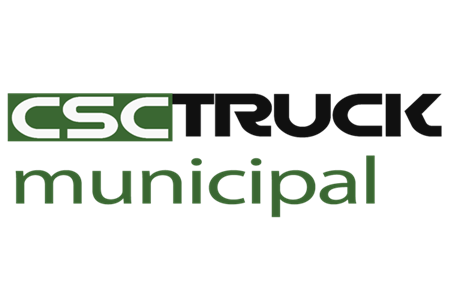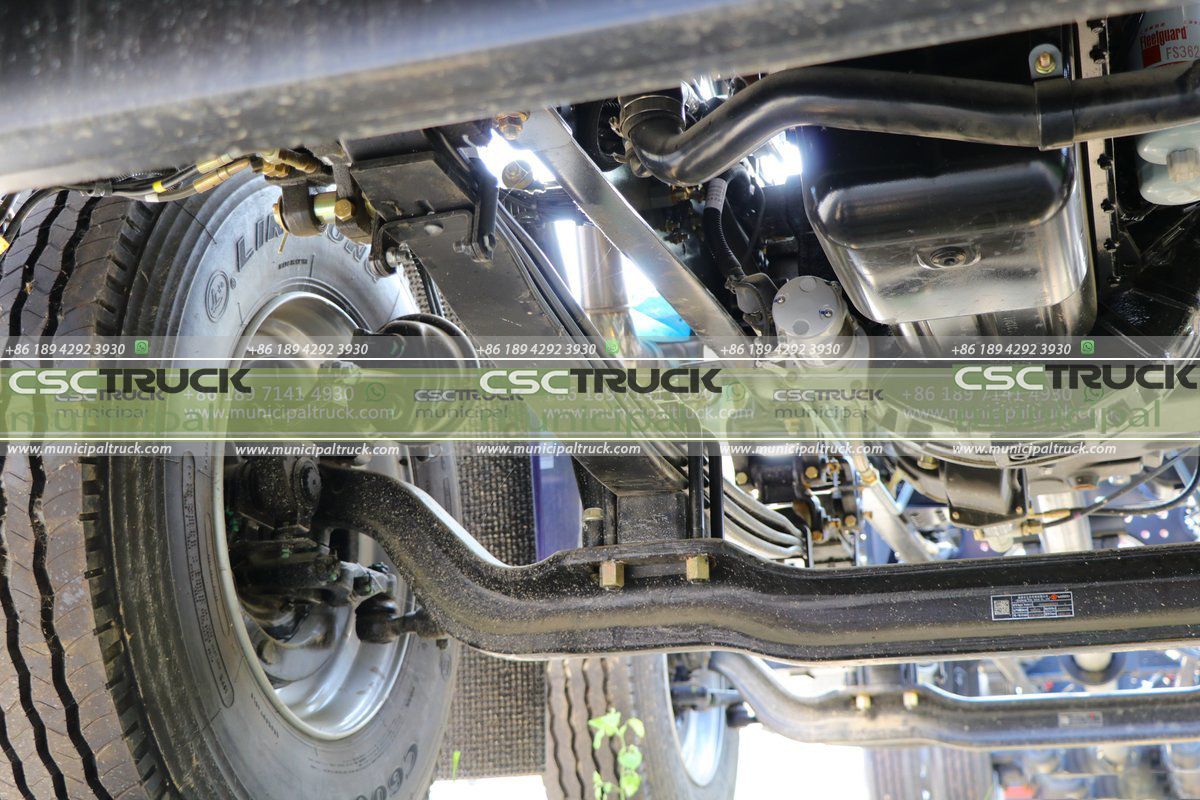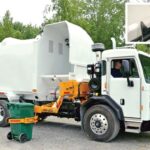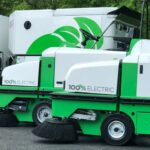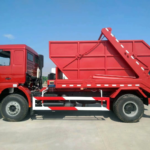Waste management has come a long way in terms of efficiency, sustainability, and technology. As urban populations continue to grow and waste production increases, the need for smarter, more efficient waste collection solutions becomes ever more critical. Garbage trucks have evolved from simple waste carriers to sophisticated machines equipped with cutting-edge technologies aimed at improving waste collection processes, reducing environmental impact, and increasing safety. In this article, we explore the latest innovations in garbage trucks and how they are revolutionizing waste management worldwide.
1. Smart Garbage Trucks: Integrating IoT for Improved Efficiency
The rise of the Internet of Things (IoT) has profoundly impacted industries across the globe, and waste management is no exception. Smart garbage trucks are becoming an essential part of modern waste collection, providing real-time data and insights that enable waste management companies to optimize their operations.
Real-Time Tracking and Monitoring
One of the key innovations in garbage trucks is the integration of GPS and IoT-enabled sensors. These sensors allow fleet operators to track the location of trucks in real time, monitor waste levels in containers, and identify the most efficient routes for collection. This data-driven approach helps waste management companies to streamline operations, reduce fuel consumption, and ensure that resources are used optimally.
Benefits of IoT-Enabled Garbage Trucks
By utilizing smart garbage trucks, waste management teams can predict when bins are full, enabling them to plan collection routes more effectively. The real-time tracking also provides valuable data for analytics, helping companies improve customer service and reduce operational costs. Additionally, the use of smart technology ensures that waste collection is more responsive to community needs, reducing delays and improving overall service reliability.
2. Electric Garbage Trucks: The Future of Sustainable Waste Collection
As the world continues to focus on reducing carbon emissions, electric garbage trucks are gaining popularity as a more environmentally friendly alternative to traditional diesel-powered vehicles. These electric garbage trucks offer significant reductions in both carbon emissions and noise pollution, making them an ideal choice for cities aiming to reduce their environmental footprint.
Zero Emissions for a Greener Future
Electric garbage trucks are powered by rechargeable batteries, eliminating the need for fossil fuels. By switching from conventional diesel engines to electric propulsion, waste management companies can significantly reduce their contribution to air pollution. In addition, electric garbage trucks generate much less noise, which is especially beneficial for urban areas where noise pollution can be a major concern.
Reducing Operating Costs with Electric Garbage Trucks
While the initial investment in an electric garbage truck may be higher than that of traditional trucks, the long-term benefits far outweigh the costs. These trucks have fewer moving parts, which leads to reduced maintenance costs. Moreover, electric trucks benefit from government incentives and tax credits aimed at promoting green technologies. Over time, the savings on fuel and maintenance make electric garbage trucks a financially viable solution for waste management companies focused on sustainability.
Extended Range and Performance
Advancements in battery technology have also increased the range and performance of electric garbage trucks. Many modern electric trucks can handle long routes and manage the same amount of waste as their diesel counterparts. As charging infrastructure improves, the adoption of electric garbage trucks will continue to rise, becoming a mainstay in waste collection fleets worldwide.
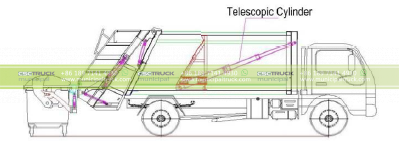
3. Automated Collection Systems: Reducing Labor and Enhancing Safety
The waste management industry has seen a significant shift towards automation, and garbage trucks are no exception. Automated collection systems are transforming how waste is collected, minimizing the need for manual labor and enhancing both the efficiency and safety of operations.
Robotic Arms for Bin Collection
Many garbage trucks are now equipped with robotic arms that can autonomously lift and dump bins into the truck’s container. These robotic arms are operated by the truck driver, allowing them to collect waste without leaving the truck. The automation of this process reduces the need for additional laborers and ensures that waste collection can be done more quickly and efficiently.
Enhanced Safety Through Automation
One of the primary benefits of automated collection systems is the increased safety they offer. With automated garbage trucks, workers are not exposed to the risks of manual lifting and emptying heavy waste bins, reducing the chance of injury. Furthermore, automated collection allows drivers to stay within the safety of the truck while collecting waste, which minimizes the risk of accidents occurring during the collection process.
Improving Waste Collection in Difficult Areas
Automation also enables garbage trucks to operate in environments that would be difficult for manual laborers to navigate. In narrow streets or densely populated urban areas, an automated system can help optimize the route and ensure that waste is collected efficiently, even in the most challenging spaces.
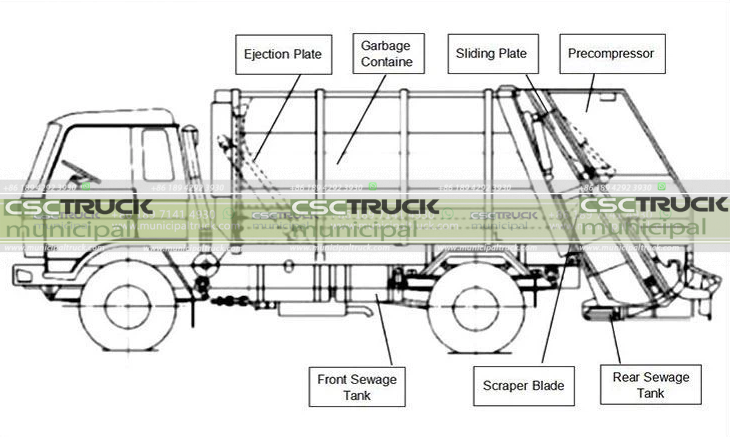
4. Compression and Compaction Technology: Maximizing Capacity and Reducing Waste Hauling
One of the most significant innovations in garbage trucks is the use of advanced compaction and compression technologies. Compactor garbage trucks are designed to compress waste in order to maximize the truck’s load capacity, reducing the number of trips required to dispose of waste and increasing operational efficiency.
Hydraulic Compaction Systems for Efficient Waste Management
The heart of a compactor garbage truck is its hydraulic compaction system, which uses a hydraulic ram or plate to compress the waste inside the truck’s container. This enables waste collection vehicles to carry a much larger volume of refuse without needing to stop and offload frequently. By increasing the truck’s capacity, waste management companies can reduce fuel consumption and minimize the environmental impact of waste hauling.
Benefits of Waste Compaction
The use of compactor garbage trucks also makes it easier to manage waste in landfills, as the compressed waste takes up less space. Additionally, the reduction in trips means fewer vehicles on the road, resulting in decreased traffic congestion and lower emissions. These benefits are critical in urban areas where space is limited and air quality is a growing concern.
Innovation in Compaction Technology
Recent innovations in compaction technology include the development of more efficient compaction mechanisms and the use of automated systems that can adjust the compaction pressure based on the type of waste. This ensures that the truck can optimize its load capacity without risking damage to the vehicle or the waste.
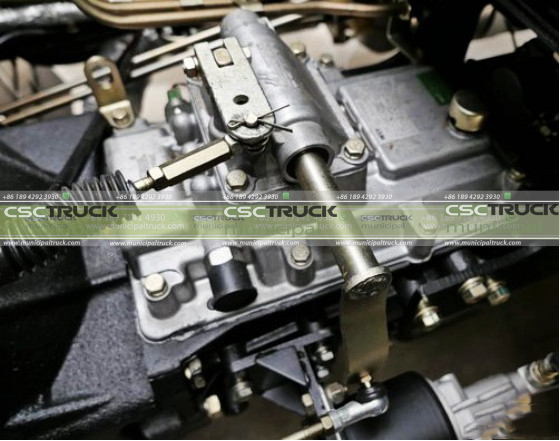
5. Hybrid Garbage Trucks: The Best of Both Worlds
Hybrid garbage trucks represent a compromise between traditional diesel-powered trucks and fully electric vehicles. These trucks combine a diesel engine with an electric motor, offering the benefits of both systems while minimizing the drawbacks. Hybrid vehicles have gained traction in waste management because they provide increased fuel efficiency and reduced emissions.
Diesel-Electric Hybrid Systems
The hybrid system in a garbage truck allows the vehicle to use the electric motor for low-speed, short-distance travel, such as when navigating residential streets. For longer distances or higher speeds, the diesel engine is used to provide additional power. This dual system helps to reduce fuel consumption while maintaining the power needed for waste collection.
Benefits of Hybrid Garbage Trucks
Hybrid garbage trucks offer the advantage of being more fuel-efficient than traditional diesel trucks, reducing operational costs. They also produce fewer emissions, contributing to cleaner air in urban environments. Hybrid vehicles can also be charged during downtime, ensuring that the electric motor is always ready for use, further increasing the truck’s efficiency.
The Future of Hybrid Technology in Waste Collection
As hybrid technology continues to evolve, the future of garbage trucks looks increasingly sustainable. Hybrid systems are expected to improve in terms of fuel efficiency, reducing the reliance on fossil fuels and making waste collection even more eco-friendly.
The latest innovations in garbage trucks have transformed the waste management industry, making it more efficient, environmentally friendly, and safer. From the rise of smart garbage trucks that optimize waste collection routes to the development of electric garbage trucks that reduce emissions, the future of waste management is brighter than ever. As technology continues to advance, these innovations will only become more integrated into daily operations, ensuring that waste collection remains a streamlined, effective process for cities worldwide.
